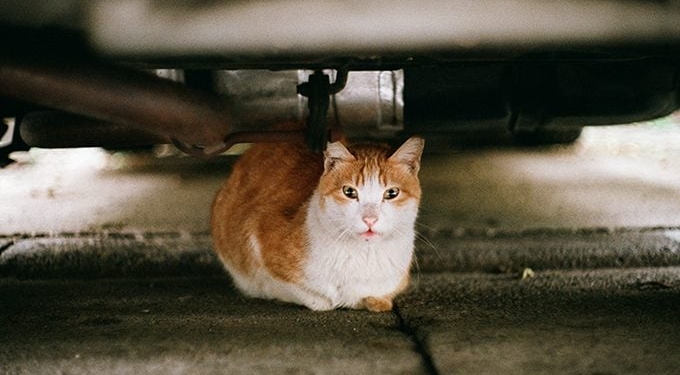Don’t forget your fish, bird and reptile friends. Fish owners may need to increase the temperature on aquarium heaters, while owners of birds, reptiles and amphibians might need to upgrade pet enclosures with additional heat and humidity sources, including drippers and foggers, suggests licensed veterinary technician Amanda Fredal, director of live pet care at pet retailer Pet Supplies Plus.
“Pets that enjoy tropical environments … need to maintain a tropical environment, even in the winter,” she says. “For exotic pets [like birds, fish and reptiles], a drafty window or area in the home must be avoided. It may not be an issue in other seasons, but could become a real health risk to your pet. Keeping a thermometer in the area of an exotic pet’s enclosure can help identify drafts that must be addressed.”
And make sure they don’t get too hot. “Be careful of fireplaces and space heaters,” Berst says. “Pets may like the feel of the heat and get too close and get burned. They could also knock over a space heater and cause a fire.… Consider putting up fencing or blocks so they can’t reach heaters or fireplaces.”
Watch for outdoor weather-related hazards
Slipping on ice and heavy snowdrifts. Senior dogs, especially, can slip on icy surfaces and sustain serious injuries, Fredal says. And even moderate snowdrifts can pose serious dangers for small dogs that can’t get out of them, Berst notes. Therefore, keeping a path cleared for walks and bathroom breaks is critical.
Frozen bodies of water. Avoid frozen ponds, rivers and lakes, which can be deadly for pets who fall through the ice, Greenstein says. Because bodies of water can be invisible under snow, it’s best to keep pets on leash at all times, says Lindsey Wolko, founder and CEO of the Center for Pet Safety, who says off-leash pets are more prone to getting lost in winter because snow can cover up the scent cues they might otherwise use to navigate home.
Car engines. Cats may seek shelter in warm nooks and crannies — like automobile engines. “You want to pound on the hood of your car before you start it in the morning to make sure you don’t have a cat or any kind of rodent that has gone up there to absorb the warmth,” Wolko says.
Chemicals used to treat cold and ice. “Antifreeze is highly toxic to dogs and cats, and when you put the fluid in your car for the windshield wiper you have to make sure there’s none that they can get into or lick,” says veterinarian Grant Little, veterinary expert on the website JustAnswer. “Antifreeze has a sweet aroma to it and dogs and cats typically like the taste of it, but it is extremely deadly.”
Also be careful of deicers. Use ones that are safe for pets, but note that some people don’t. “Most salts can be safe for pets to walk in as long as they aren’t licking it off the paws. You will find the bags at the store can say ‘pet friendly’ or ‘dog friendly’ to show they don’t have added chemicals that are harmful when ingested,” Little says.
Cars that might not be able to stop quickly. Be careful when crossing streets with your pet, cautions Greenstein, who notes that cars may require extra stopping distance on snow and ice.
AARP.org































Discussion about this post